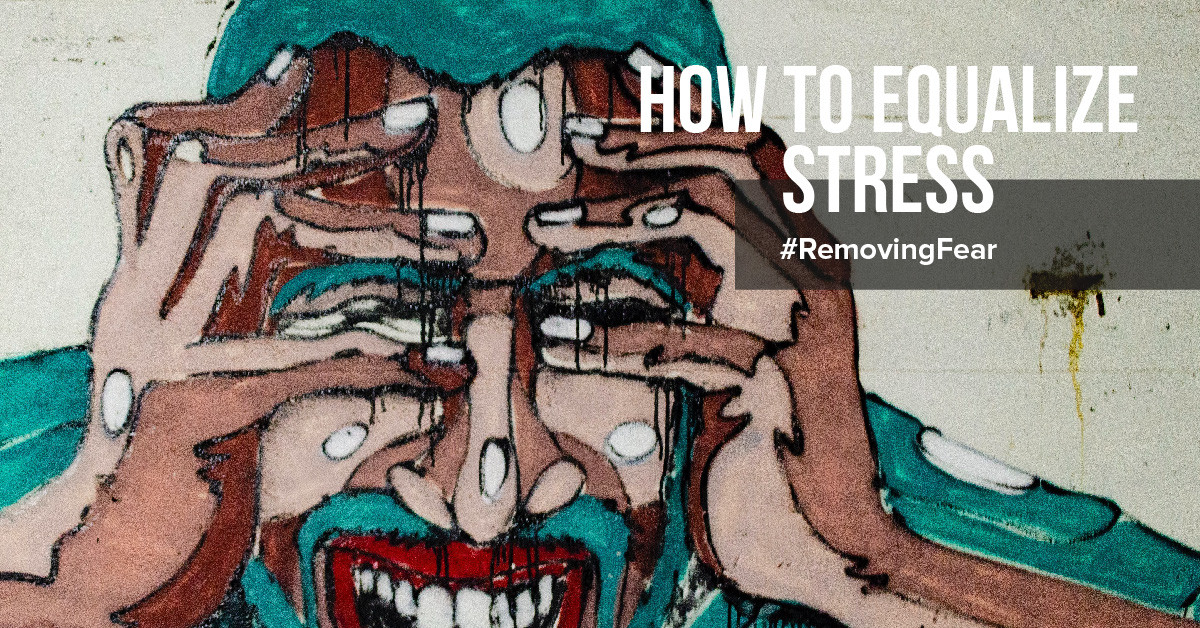How to stop panic attacks? | Best practical tips
Learn how to stop panic attacks by these practical tips. Reduce your stress level and stop the fear and anxiety.
The main reason to worry or to panic is some kind of fear. Dealing with someone who is - unnecessarily - worried or panicking can be difficult. Often the fear is unfounded but it is difficult to calm that person again. How do you deal with it and what can you do about it? Below is a basic Stress reducing exercise that can offer support.

Worries or panic usually arise when people experience an uncertain outcome of a situation. Am I getting fired? Is that customer going to get angry? Will all my colleagues soon be disappointed in me? Questions that can lead to panic or unnecessary worry.
The panic attack exercise is all about with Intentions, Opportunities, Downsides, and Insecurities and can in many cases calm down a person who is concerned about filtering facts and assumptions.
The theory behind panic attack exercise
The model assumes that a person's concerns or panic have essentially arisen through false assumptions that are perceived by the person as truth. A situation occurs and the person predicts a negative outcome without checking whether his or her assumptions are based on facts. With the model, you make a distinction between facts and perception.
The questions you ask are reciprocally the following:
- What was the Intention that created the situation?
- Of which we know for sure that this is an Opportunity
- Of which we know for sure that this is a Downside
- Of which we cannot (yet) say with certainty whether it is an Opportunity or Downside that makes it an Insecurity?
Once all ideas, facts, and beliefs have been fully mapped out, a healthy dialogue can be started about what Insecurities have a real threat and how we can influence or manage these. Facts are facts, so you don't have to talk about the Downsides and Opportunities anymore.
Prioritize how serious the consequences could be of all Insecurities in scale 1 to 10 and write down the level of influence you have. Crossing out the uncertainties that have little to no major or permanent negative effect creates an overview in the mind of the person who is worried or is in a panic. As a result, a real dialogue can take place about the Insecurities that are really to worry about.
The matter of influence
With regard to the remaining Insecurities, you should check to what extent you have the influence to prevent or repair negative consequences. After you have written everything down, you and the person will notice that the fear can now channel itself to just one or two subjects. We can question whether the outcome will really be negative.
Completion
Because it is often only about 1 or 2 Insecurities, it is relatively easy to determine whether you can live with these Insecurities. A control question is whether the original Intention outweighs the Downsides and Insecurities.
If the Insecurities carry enormous risks and there is no or minimal influence on them, they can be moved to the Downside. This allows the person who is panicking to face reality.
The outcome can be two-fold.
- The person accepts the outcome and calms down.
- The person refuses to accept the outcome and continues to be seriously concerned and/or is still panicking.
In the latter case, acceptance exercises by an experienced life coach are the best solution.
Unsubstantiated negative predictions cause stress and panic
The core of stress often lies in predicting a negative outcome without having verified it. The person who experiences the stress is convinced of the negative outcome and gets an anxious feeling from it. This may be because the predicted outcome itself is annoying or because the consequences of the predicted outcome are annoying.
The problem with stress is that you can reason less logically and therefore have difficulty stepping out of your own delusion of truth. The person relies more on his or her own assumptions and emotions than on alternative scenarios.
Example: Someone with an in-flight fear suffers a lot of stress before and during the flight. The belief that the particular plane he or she is sitting in will crash weighs more heavily than the fact that flying is still the safest form of transport in the world. The fact that the chance of something happening is the smallest does not mentally come in. The negative prediction and stress block all logic.
Questions you can ask someone with stress or a panic attack
As an outsider, you have no proof that the negative prediction can never come true, so you are often powerless if you do not have the right coaching tools at hand. Reasoning and convincing is also usually counterproductive.
What can work is asking a number of questions to restructure the internal landscape of a stressed person. Questions you can ask are, for example:
- What exactly is it that you know about this that makes you predict this negative outcome?
- What certainty do you have that this negative outcome will become true?
- Are there alternative outcomes that can have a positive effect?
In some cases, you can also mentally take the person to the negative outcome, as it were, by asking specific questions. Be careful with this. You can do this by asking questions, for example:
- If this negative outcome is going on, where does it hurt?
- How would you experience the negative outcome?
- What kind of person do you become if you go through this negative experience?
Stress feels like a dead-end tunnel and can cause a panic attack
If the stress becomes too intense for a person it can feel as if life after the predicted situation ceases to exist. As if they were walking into a dead-end tunnel that they can't get out of. In such cases, professional help is the best solution. Stress coaches at TheONE know how to deal with this and calm people with stress.
-
Pierre HoltzhausenFull time Life CoachUS$ 0,67 pm
-
Desri GoodwinWellbeing coachUS$ 1,46 pm
-
LC NilsenPsychology studentUS$ 0,47 pm
-
Anthony KollerI am a psychiatrist.US$ 1,13 pm
-
Daria MagdaQi gong practiceUS$ 0,38 pm
-
John VF healerspiritueel, mediumUS$ 0,73 pm


































